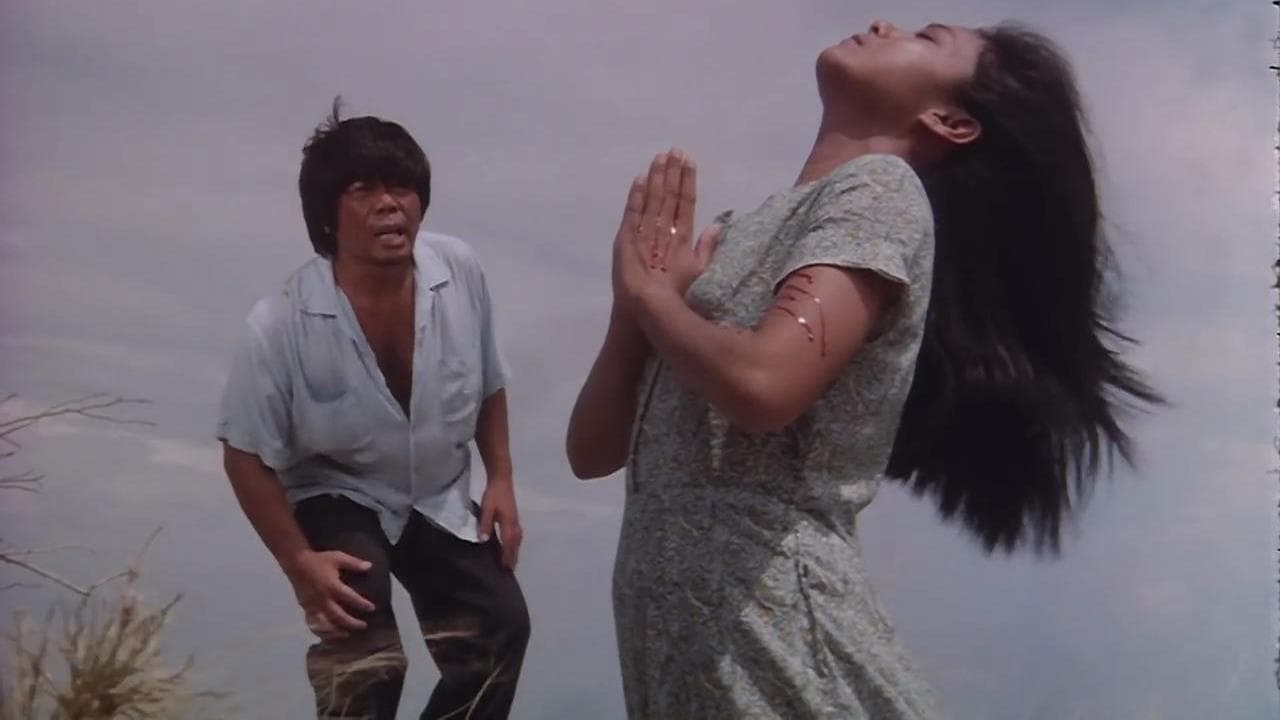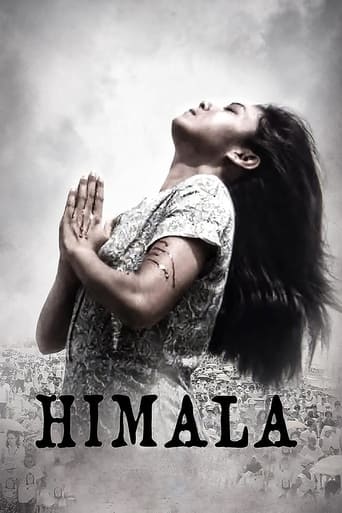Steinesongo
Too many fans seem to be blown away
Dorathen
Better Late Then Never
Brennan Camacho
Mostly, the movie is committed to the value of a good time.
Philippa
All of these films share one commonality, that being a kind of emotional center that humanizes a cast of monsters.
Desertman84
No question about it.Himala (Miracle) is definitely a Filipino cinema masterpiece.Released more than thirty years ago,it remains one of the timeless classics that released in the Philippines.Himala is the story of Elsa, a woman from a forgotten place in the Philippines called Cupang.Her visions of the Virgin Mary change her life and cause a sensation hysteria in a poor, isolated northern village in the midst of drought.After announcing that she has seen the Virgin Mary,she then demonstrates a new-found ability to heal the sick. Soon the whole village has become the center of international attention as people come from all over for statues of the saints and bottles of the village's holy water. Among the hordes of visitors is a skeptical film director intent on visually recording Elsa's healing powers and without his knowing it, some frames capture a secret Elsa has kept from the world for a long time, a secret which led to her sister's suicide.The film is centered on the issues of religious faith and faithlessness, morality, and truth.This is one great film as I have stated previously.There are numerous reasons behind it.First of all,the performance of lead actress,Nora Aunor was simply amazing.Her eyes and mood captures the spirit of what the film is all about.She also is able to bring the concept of what religious fanaticism which it was all about.And most of all,her final monologue remains the most unforgettable delivery in Philippine cinema.Aside from that,the supporting cast should be given credit as well for they exemplify what the talent Filipino thespians have.And in addition to that,we also get to realize the talent of the late Ishmael Bernal,one of the greatest Filipino directors of all time.This definitely will compete for Jose Rizal with regards to the title,"The Greatest Filipino Film Of All-Time".
Prometheus Brown
Frame for frame, Himala (1982) may be the most beautifully shot Philippine film I've ever seen. With a photographer's eye, director Ishmael Bernal (City After Dark, Relasyon) turns an arid, non-descript countryside Philippine town into a mystical place with real people. The Superstar of Philippine Cinema, Nora Aunor, playing the lead role, works with the visual setting as much as it works with her. She's the ever-sad Elsa, an illegitimate child who one day claims, like many of us Filipinos like to do, to have seen the Virgin Mary, who has endowed her with super healing powers. A battle between her and a doubtful, sometimes vengeful, Catholic church ensues, and she starts winning. Throngs of peasant folk travel from afar to get their miracle on, and the once-filled church dwindles to a measly ten people. Is she real, or is it a hoax? For a suffering people short on hope in the faith they were given, and seeking it elsewhere, anywhere - does it even matter? Acting with just her eyes for most of the film, Aunor is mesmerizing. She saves all that pent-up melodrama for the film's final scene, where she reveals herself as a dialectical materialist: "Walang himala! Ang himala ay nasa puso ng tao…ang himala ay nasa puso nating lahat!" (There is no miracle! The miracle is in the heart of a person… the miracle is in all our hearts!). Himala makes a potent, poignant statement on Filipinos' faith, making a subtle connection between the colonial legacy of the church and the suffering that drives us toward and away from it.
gonzaga ext
I had the rare pleasure of watching "Himala" by Ishmael Bernal at Imaginasian's NY Filipino Film Festival (2 more screenings are scheduled: Oct. 10 & 15—subtitled, but be forewarned that the print is not that great). It's frankly quite a sad statement for Philippine cinema when audiences flock to watch horrendous films like "Dubai" (destination: Canada!) while a rare classic like "Himala" attracts but a handful of people. (Ironically, both films are written by the same person, writer Ricky Lee.) Like "Tinimbang Ka Ngunit Kulang", "Oro, Plata, Mata", and "Maynila sa Kuko ng Liwanag", "Himala" is a Filipino cinematic giant with a reputation that precedes it yet is, ironically, very hard to find even in the Philippines. For a decade the only version I could get my hands on was a copy of the script but even then it easily became one of my favorites. You can imagine then the high level of expectation I had in anticipation of the film's screening.It's interesting to finally see Nora Aunor's now legendary performance as Elsa, a simpleton who turns an impoverished village upside down when she claims to have seen the apparition of the Virgin Mary. Aunor is characteristically subtle and holds back for most of the film then lets go a torrent of emotions at the last quarter. Bernal, Lee, and Aunor, legends all, use their cinematic prowess to build crescendo, a frenzy of Third World desperation—poverty, sickness, death—with resulting tension that inevitably explodes in the end. When Elsa gathers her followers near the end of the film we see both Elsa and Aunor as the Chosen Ones in their calling. (Filipinos in the know love to repeat the annoying trivia that she almost won—'She lost by 1 vote!'—the Berlin Film Festival Best Actress award. But since when did almost winning count in any film festival?)Celebrity, religion, poverty, and fanaticism collide in "Himala", arguably one of the best Filipino films ever made. It is well-made on major counts—acting, writing, and direction—but, more importantly, it asks questions that really matter. In a country overwhelmingly spoon-fed with Catholicism, "Himala" questions the institutions and truths we've created and challenges us to do the same. It's a serious commentary on how myth serves its purpose when truth is too hard to swallow. If you can choose only 1 Filipino film to watch, let it be "Himala".
tonS.
"Himala" is Filipino for "miracle" and this is precisely what the movie is. A strong contender for Best Picture in the 1982 Berlin Film Festival and the hands down winner in the Metro Manila Film Festival, "Himala" is one film cineastes must watch if he or she wishes to explore Philippine cinema. Set in a God-forsaken marginal town, "Himala" boasts of a richly textured millieu, a veritable Filipino Nowhereland just waiting for a miracle. And the miracle-incarnate is Elsa, a simple but headstrong young girl who claims to have seen the Virgin Mary and who starts a healing crusade. The complex, highly nuanced role was played by the Philippine's premiere actress Nora Aunor, who missed the Berlin Best Actress award by one vote. Everyone else in the film were thespians from theatre. Loaded with fascinating characters caught in an ideological-moral inferno, the film brings to the fore the complex, harsh social realities that face third world people and how such realities find their way in cultural expressions such as religion. The sensitive direction of the late Ishmael Bernal, the creatively austere camera work, the haunting musical score, and of course, the thespic genius of Nora Aunor make "Himala" a truly great film that merits re-viewing and re-discovery, especially by foreign audiences. The "Via Dolorosa" denouement remains as one of the most riveting scenes I've ever seen in any film. A cinematic miracle, indeed.

